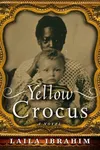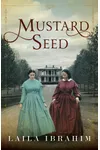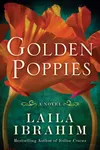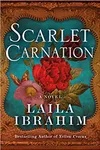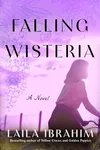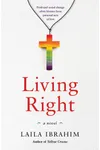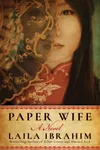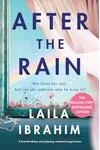Picture a storyteller who spun a tale of love across racial divides, defying the odds to become a beloved author—meet Laila Ibrahim! With her debut novel, Yellow Crocus, Ibrahim transformed her experiences as an educator and birth doula into historical fiction that tugs at the heartstrings. Her stories weave themes of social justice, family, and resilience, inviting readers into worlds where hope blooms against adversity.
Born in Whittier, California, Ibrahim’s journey to authorship is as inspiring as her novels. Her background in developmental psychology and her Unitarian Universalist faith infuse her work with emotional depth and a vision of human connection. Let’s dive into the life and legacy of this remarkable writer!
The Making of Laila Ibrahim
Growing up in Whittier, Ibrahim moved to Oakland to attend Mills College, where she studied psychology and child development. Her Master’s in Human Development fueled her passion for understanding relationships, which later shaped her novels’ rich character dynamics. Before writing, she founded Woolsey Children’s School, worked as a birth doula, and served as Director of Children and Family Ministries at the First Unitarian Church of Oakland. These roles gave her firsthand insights into love, loss, and community, laying the groundwork for her storytelling.
Ibrahim never saw herself as a writer until her 30s, when the idea for Yellow Crocus sparked during a conversation about identity. For seven years, she resisted the call to write, calling it her “Jonah moment.” At 40, she finally embraced her destiny, self-publishing her debut novel in 2011 after facing rejections from traditional publishers.
Laila Ibrahim’s Unforgettable Stories
Ibrahim’s novels are historical fiction gems, blending meticulous research with heartfelt narratives. Yellow Crocus (2010) follows Lisbeth, a white plantation owner’s daughter, and Mattie, her enslaved wet nurse, as their bond challenges the brutal realities of 1800s Virginia. Praised for its emotional depth, the book has a 4.33 Goodreads rating and over 80,000 reviews, proving skeptics wrong.
The Yellow Crocus series continues with Mustard Seed (2017), exploring post-Civil War struggles, and Golden Poppies (2020), tackling 1890s racial tensions. Scarlet Carnation (2022) and Falling Wisteria (2024) dive into early 20th-century challenges, while Paper Wife (2018) traces a Chinese immigrant’s journey in 1920s San Francisco. Ibrahim’s style is accessible yet profound, balancing light-hearted moments with unflinching looks at injustice, all rooted in her expertise in attachment theory and multiculturalism.
Her stories don’t shy away from slavery’s horrors but focus on love’s power to transcend oppression. Readers love her vivid settings and characters who feel like family, making her books perfect for book clubs craving meaningful discussions.
Why Laila Ibrahim Matters
Ibrahim’s impact lies in her ability to humanize history’s overlooked voices. Her novels bridge racial and cultural divides, fostering empathy in a world that still grapples with inequality. By self-publishing Yellow Crocus, she defied industry gatekeepers, inspiring aspiring authors to tell their stories. Translated into ten languages and reaching a million readers, her work proves that authentic storytelling resonates universally.
Living in a Berkeley co-housing community with her wife, Rinda, and their toy Aussie, Hazel, Ibrahim continues to write, cook, and study the Enneagram for character development. Her Unitarian Universalist values shine through, offering hope and justice in every page.
- Born: Whittier, California
- Key Works: Yellow Crocus, Mustard Seed, Paper Wife, Falling Wisteria
- Notable: Self-published Yellow Crocus after industry rejections
Snag Yellow Crocus and dive into Laila Ibrahim’s heartfelt historical fiction—you’ll be hooked!
